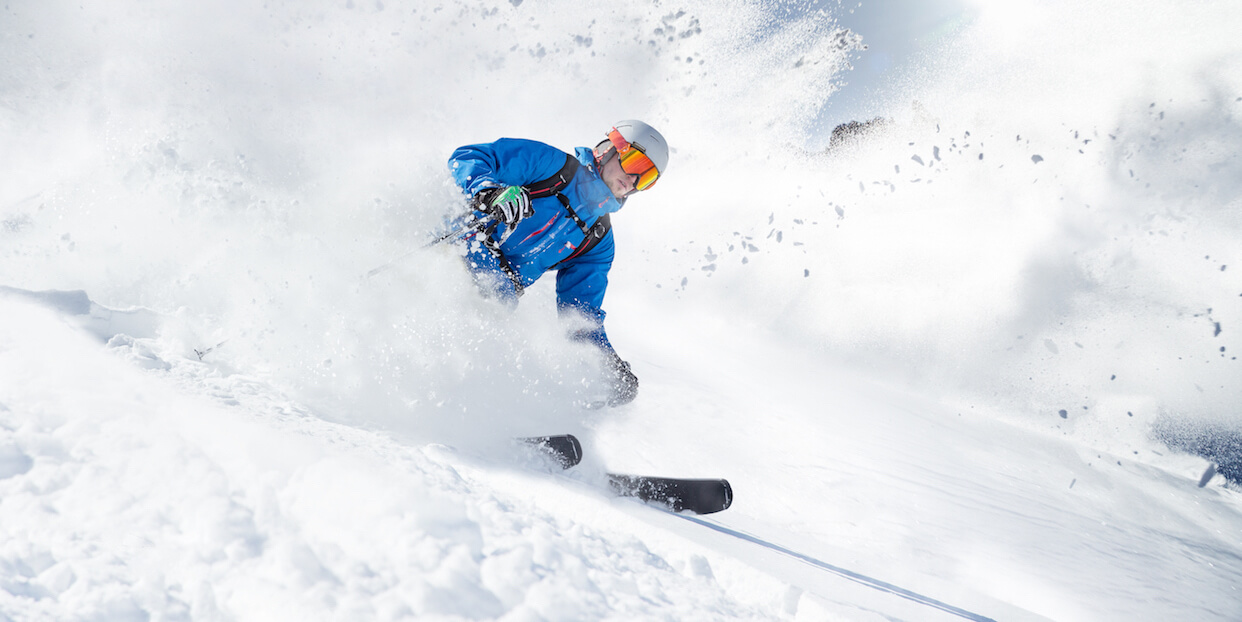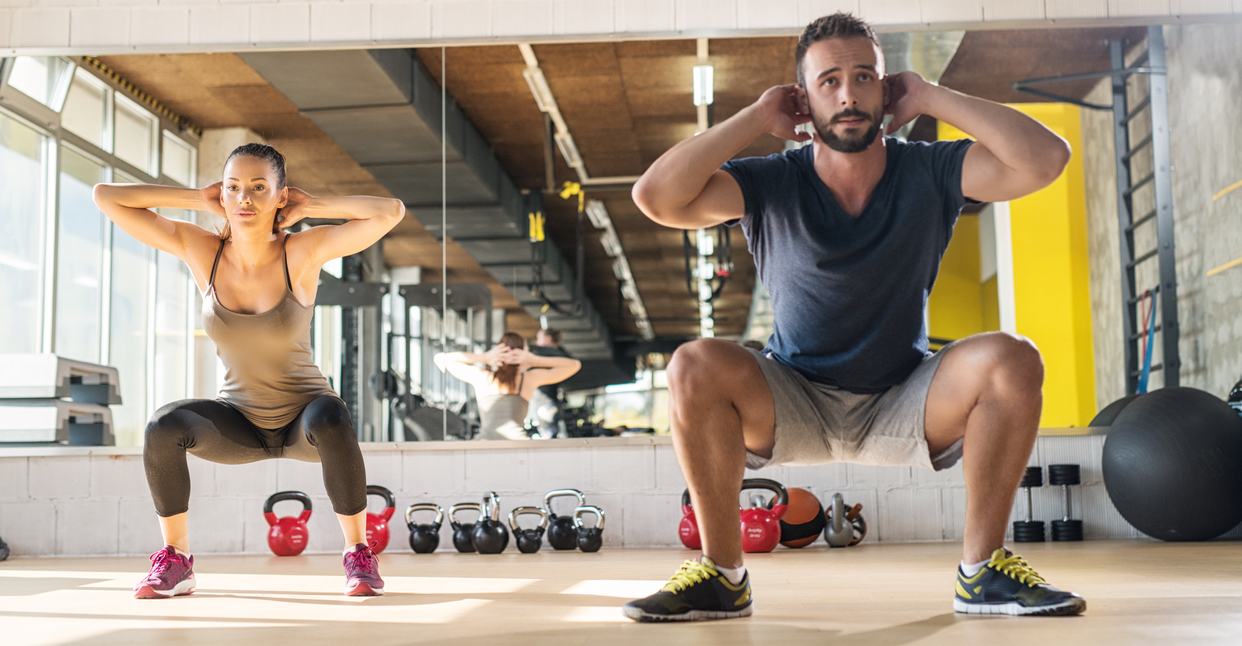Почему мы занимаемся спортом

Physical activity is defined as any bodily movement produced by skeletal muscles that requires energy expenditure. If it is physical activity that someone does regularly for enjoyment rather than work we call it sport.
It is such an elementary part of our lives, that some say movement is live and life is movement.
If somebody has to do a lot of physical effort to bring food on the table and keep the family safe, it will not leave much time for other activities. But interestingly even in cultures where this is the normal case for most people, different forms of physical activity outside of work have a long tradition. This shows, that human beings have a natural interest in non-work related, playful physical activities. It might come from early childhood. Healthy children move around in many possible and impossible ways to explore and conquer their environment. Ultimately they get on their feet and start doing the same walking upright. Besides a remainder of the child in us, the motivation for playful voluntary physical activity in adults seems to be related to higher levels of the Maslow Pyramid: love/belonging, esteem and, self actualisation.
Number one is just to gain a passion for running. To love the morning, to love the trail, to love the pace on the track. And if some kid gets really good at it, that’s cool too.
What is the Purpose for Our Participation in Physical Exercise
Why is somebody doing a sport or physical exercise? I think this is the most important question to answer before we start discussing the reasons for doing a specific exercise in this way and not another?
Sports activity does not have the purpose to produce useful goods.
It’s goal and ultimate purpose is to evoke the full potential and to control the game of forces by subordinating them to one’s own willpower.
The effect of sports activity on humans is a decisive and constituting contribution to the general personal development.
That’s how humans have developed a great system for self development and performance improvement, health maintenance and recreation.
The list presented here is my personal summary of some of the top reasons for doing sports. It is based on observation during my work as a fitness trainer in the gym and as a lifelong active athlete in many disciplines.
You might have noticed already, that I do not distinguish between sport and physical exercise here as many do based on the level of organisation and focus on competition or fun and health benefits. The distinction can make sense, but it is related to how individuals package or prioritise the different goals, while our context is to just identify them. Many of the reasons do overlap and the same person can prioritise competition and health at the same time.
In an exhaustive examination of sports motivation in the framework of the self-determination theory extrinsic motivation and amotivation should be considered too. For the purpose of this article I do focus on intrinsic motivation first of all.
Reason 1: Physical Fitness
Standing on the surfboard, skis or snowboard on the first day of their vacation can turn out in complete exhaustion and painfully sore muscles on the days after. If you are not prepared for such demanding physical activity. And quite a few more real fun leisure activities are physically demanding. That’s why general physical preparedness is one of their top reason to adhere to a fitness training one, two or three times throughout the year no matter how crowded their calendar. They want to life an active and fun lifestyle.
Strengthening the muscles and cardiovascular system at least once but better two or three times a week is the price for this. Ideally some exercises for functional ability should be thrown in regularly too to target such conditioning factors like balance and flexibility. They play an important role in enjoying many other fun activities and preventing injuries too. Think about putting on your socks standing on one foot.
Reason 2: Body Esthetics
Almost everybody I know wants to make a good impression on others. And a few of them make this a very high if not top priority. For some this involves maintaining a slim body shape, for others to pack on some impressive muscles. Most of the good impression ultimately comes from the inside and a strong, proud and upright body posture. Which is definitely a regular outcome of healthy sportive activities.
Reason 3: Weight Management
Weight loss and weight gain. Statistically this goal might well be at the top of the list for female and male fitness athletes. Almost everybody struggles a bit to loose or gain some weight at some stage in their lives. A few athletes need to do this as a regular part of their preparation for a competition in a specific weight class.
Most sportive activity will require and lead to a healthy diet. Obviously a combustion engine race car can not run efficiently without the right mix of gasoline. This metaphor is often mentioned by fitness trainers to explain the importance of a good nutrition for our body to perform optimally and stay healthy. Some will even argue, that it is more important or a sine qua non pre-condition at least for some goals in sport. For the purpose of simplicity and focus we will assume that nutrition is dealt with appropriately and not further discuss it.
Reason 4: Health Maintenance
This goal is definitely at the top of the list for most of us and certainly of public health politicians who care for the overall health of a population. When we wish somebody well on their birthdays, good health is usually included together with happiness. It includes prevention of diseases, injuries and more.
There are many scientific studies on this topic and the list of health related benefits from physical activity is quite impressive:
Improve aerobic capacity
Reduce blood pressure
Lower type 2 diabetes risk
Maintain immune functioning
Reduce body fat
Keep bones strong
Build muscle mass
Improve breathing
Boost energy
Reduce the risk of arthritis
Maintain sexual functioning
Improve emotional resilience
Better sleep
Improved mood
Lower anxiety
Boosts memory
Lowers dementia risk
Most of these benefits come from rather moderate levels of physical activities. Competitive athletes and people pursuing active lifestyles accept higher levels of risk to offset some of these health benefits for the benefit of other goals.
Reason 5: Wellbeing
Wellness is defined as a combination of fitness, health and happiness. It is often mentioned as a specific goal for people to get physically active. Nobody would probably argue against improving his general quality of life.
Sleep is another critical precondition for physical activity and we will assume here, that you take care to get the appropriate sleep time regularly.
Reason 6: Personal Growth
Self-determination. Self-improvement and development. Performance, out-performance. Skill development. Accomplishment. Knowledge. Desire to achieve sport competence. Sport can foster many positive character traits like discipline, commitment, humility, friendship and courage.
The highest and most difficult mountain is always the one we carry within ourselves. Because ultimately we create our own mountains and the desire to conquer them.
Reason 7: Longevity
Preventing ageing or at least staving off the effects of ageing is a motivation for many to be physically active. The process of ageing is irreversible and non-stoppable. But it is also amazing and inspiring to see how people who continue to participate in sports are fitter and with a more juvenile appearance than much younger individuals with a more sedentary lifestyle.
Reason 8: Pain Reduction
It is a very frequent experience, that many ailments and pains get better after a while with a targeted and balanced training program. Training exercises can also be helpful for restoring functionality after and injury.
Reason 9: Recreation
Even strenuous physical exercise can be experienced as a mental relaxation, for somebody who has to mentally concentrate and perform at work. If the workout takes place outside, this refreshing experience might be even stronger.
Reason 10: Socialise
Camaraderie, congregate in groups, social interaction, support, parental, family, peer support, imitation, social networks. Sports is a very popular place for people to come together and have some fun.
Reason 11: Competition
Compete to win. Because of all the other benefits of sports there is a saying that participation comes before winning. But for ambitious personalities out-performing themselves and others, winning, be the number one in a discipline comes at the very top of the list of their reasons to do sport.
Reason 12: Sense of Achievement
Reaching any of the goals on this list gives us a sense of achievement and proudness. And because there are so many combinations and prioritisations among these goals, sports is a great way to experience it for almost everyone. All it takes is to make up your mind and start moving.
Reason 13: Prestige
Achieving some of the goals on this list can lead to social recognition and prestige, at least in certain more popular or spectacular disciplines. Successful sportsmen can gain popularity through presence in the media. They often have a high status in society as role models especially for the youth.
Reason 14: Fun
Participating in many sport activity comes with positive emotions. Excitement, satisfaction, enjoyment, stimulation, good vibrations. They are one of the strongest reinforcements to stay motivated in the long term.
Reason 15: Curiosity
Experimentation.
Reason 16: Happiness
Sport is physical activity. But it is never physical only. Most if not all sportive activity will involve the complete human being which is always a mental, physical and spiritual unity. In western traditions the spiritual aspect of physical activity is mostly neglected. Because this is highly culture and tradition dependent we will not go further into this direction here and subsume spiritual goals under self development, happiness or possibly other motivations.
Reason 17: Entertainment
Entertaining yourself and others is an age old human activity and most sportive activities are usually quite attractive and entertaining for others especially when they are performed by highly advanced and competent athletes. This is obvious for performing artists. Some top athletes like Roger Federer or Usain Bold can compete at the top level of their discipline and still find time to entertain the audience with a funny trick which has nothing to do with the seriousness of their performance. Weightlifting was and is always a great spectacle for many and is still frequently performed on public places, circuses or variety shows to entertain the spectactors. Figure skating is as much a sport discipline as it is an artistic performance in the same time. Other performing arts are less directly based on sports disciplines but still based on a high level of physical activity. Many athletes would not define their purpose to be entertainers, but they use entertainment to finance their activity. Exercise for the sake of exercise is sometimes mentioned as another goal for participating in a sport and some trainers mention it as a rather senseless justification because exercise should always make sense and have some reasonable outcome in their view. We subsume this goal in self entertainment. Assuming that nobody does participate in a regular activity without any reason. Playing around with sports simply to be not bored might not be very reasonable but it is certainly not the worst alternative to boredom.
Reason 18: Money
Professional sport and performing art is a somewhat different story. The professional athlete pursues his sport to earn an income. I would assume, that his primary motivation will come from the list below and the aspect of earning money comes after that.
These days some parents might nudge their kids to participate in soccer and tennis or bring them to the golf course with a financial motivation. They might hope they might end up as successful professionals and it could turn out to be a profitable investment of their time too. Some kids get really good in each discipline and some disciplines open the doors for lucrative jobs too. But I am quite sure, that money will not be part of the motivation which actually makes the kid participate voluntarily and asking to come back for a regular training in any sport. Once an athlete turns his hobby into a profession as coach, athlete, artist, sports manager, … a part of his sport activity turns into work. For the purpose of our definition of sport as a non-work related physical activity only the other part will remain sport activity. As mentioned earlier, the distinction made by the definition does not satisfy this case fully.
Reason 19: Extrinsic Motivation
Not everybody has the same level of self motivation. And not everybody engages in sports out of his own drive and determination to do so. During childhood and adolescence extrinsic motivation can play an important role, where everybody is more or less obliged to participate in mandatory sports activities. The main goal for the coaches in this period should be to help adolescents find their own purpose to continue participating in sports voluntarily.
A Word on Amotivation
Not everybody does show the same level of motivation or discipline for regular voluntary sports activities. For adult humans, there seems to be an increasing naturally tendency to become more physically lazy. Many loose the motivation and choose a sedentary lifestyle or end up with it because they don’t have the required commitment and discipline to stick with regular sport activities besides their busy schedules. The negative consequences of sedentary lifestyle is an important topic for physical education, health and sport scientists. That’s why a lot of discussion and research has been done to understand why people do not choose to participate in sports and how to possibly help them to change this. This article was written with a glass is half full perspective and is looking at the many positive purposes people find within themselves to do sports.
Sport, Exercise, Training, Workout is there a difference?
While some distinguish between sport as a more structured, organised and competitive activity and exercise or fitness for people who do the same but just for themselves and for pure fitness purposes. Some would also define exercise or physical exercise as any physical activity that enhances or maintains physical fitness and overall health and wellness or distinguish training versus exercise or athletic training versus fitness training or just workout.
I can’t see much value from such distinctions and use all of these terms as synonyms for sport.
I do also use exercise and workout with a specific meaning in the context of training activities. An exercise is a specific physical task (e.g. push-up). We call it a drill too. A workout is a training unit. It can consist of one or any number of exercises.
Do you know other reasons why we participate in sports? Glad to hear from you!
Author: Fit Drills AG, Andreas Schneider
Last updated: 2018-11-01




